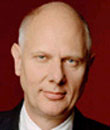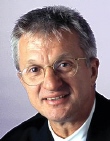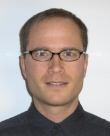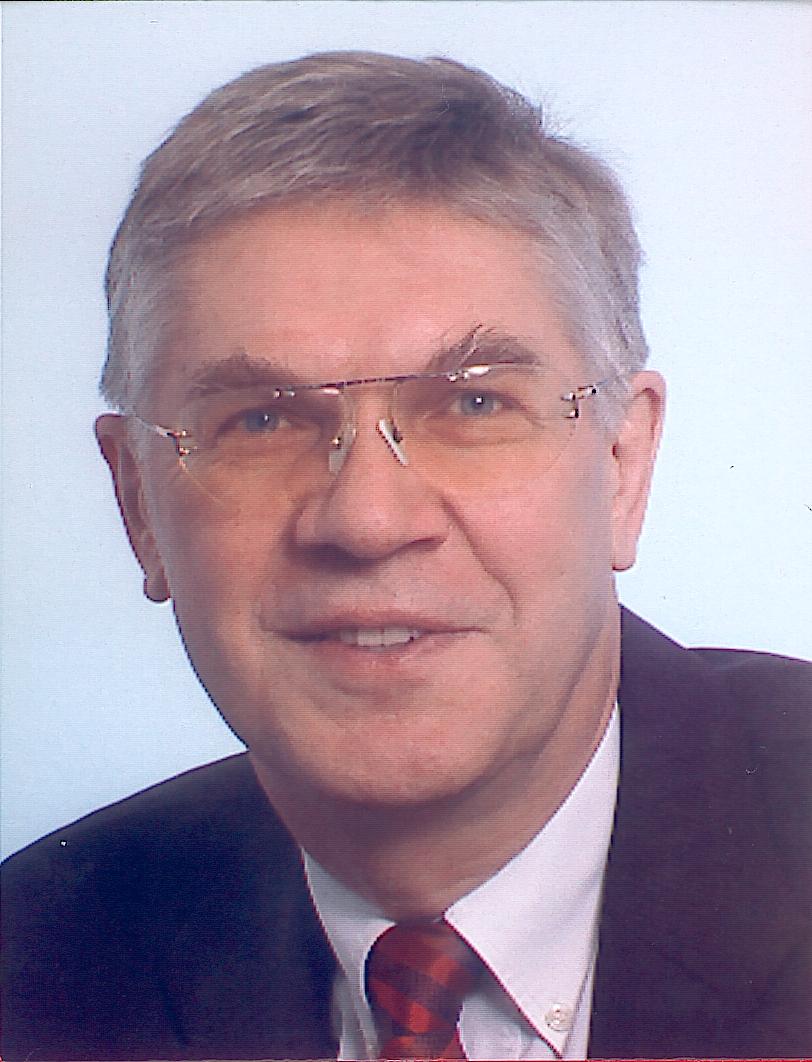>> Register for the conference
�
�
Pre-Conference:
ADVANCING FUTURE�EXPERTISE�
Approaches & Methods
�
Sunday 10 July 2005
![]()
|
SUPPLY AND DEMAND Futuring is More than Strategic Planning Chair: Pero Micic, President Advisory Board | ||
| 13.45h |
|
<< back |
|
coming soon | ||
| 14.05h |
|
<< back |
|
We�re all aware of the impossibility of simple forecasting. But what can we predict then and what not? � | ||
|
METHODS How Futurists Actually Tell the Future -�Improving Theory Chair: Prof. Erzsebet Novaky, Vice President Advisory Board | ||
| 16.00h |
|
<< back |
|
How do professional futurists actually tell the future? What methodologies are actually in use and how are they used? How do futurists manage methodological challenges posed by uncertainty, potential � | ||
| 16.30h |
|
<< back |
|
Although scenarios have been broadly used in scientific disciplines, business and consulting activities for over 25 years, there is still a lack of theory building on scenario planning methods. Specifically, no one would doubt that systems theory is an essential fundament of scenario planning, but sound research on the specific contribution is still at the beginning. This presentation focuses on the question, what principles of systems theory can be applied in concrete scenario planning processes and what is the added value of such applications. � | ||
|
REALITY (Breakout sessions part 1) Empowering Organisations with Future Intelligence Chair: Rohit Talwar, Member Advisory Board | ||
| 17.00h | Short Presentations of the Breakout sessions: | << back |
|
The workshops in the Breakout session promise to be beneficial for both sides: the future experts and the companies, countries and organisations presenting their actual future challenge. | ||
| 17.30h | Establishing a national foresight programme in a small state: how to establish the Foresight Programme for Liechtenstein? Case Presenter: Dr. Tino Quaderer |
<< back |
|
(Quest for Approach) The Government of Liechtenstein established in October 2004 the Zukunftsb�ro (Unit of Future Studies). It aims in evaluating relevant issues for a sustainable future of Liechtenstein�s economy, society, and environment. Among its tasks is the scanning of national and� international trends. It consults the Liechtenstein Government about future opportunities und risks and in cooperation with other units of the National Government defines relevant measures. In addition, the Zukunftsb�ro is open to the people of Liechtenstein for their future concerns. It� shall coordinate future relevant quests of the government, the administration, the enterprises and other stakeholders. In this regard it shall build a national and international network of all parties interested and involved in Liechtenstein�s future.
� | ||
| 17.30h |
Case 2: Swisscom Innovations |
<< back |
|
(Quest for Approach) In this regard Swisscom Innovations has designed a vision built on six different concrete stories of an "average day in 2015". These situations are based on extensive research of the main disruptive innovations described in two technology maps. However, socio-economic factors have also been taken into account in the trends maps in order to understand the synergies between the different driving-forces that will lead the world. Last but not least we have analyzed the past, the history of telecommunication innovations, to better understand the (intangible) future. In this regard we often asked ourselves on how to build this vision of a complete industry. It is these questions that we propose to share and discuss:
| ||
| 17.30h |
Case Presenter: Dr. Arthur Einsele |
<< back |
|
(Quest for Forecast) Agriculture in Europe is under pressure from different forces. Consumers are demanding enough food at a high quality and at affordable prices. Consumer behaviour is shifting towards more health and wellness and environmental concerns (organic food). NGO�s put pressure on the environmental behaviour of farmers too claiming a reduced application of fertilizers and pesticides. Simultaneously new technologies such as genetic engineering offer new opportunities for modern and visionary farming technologies. But European farmers are reluctant towards those new technologies and may therefore loose their competitiveness. International trade will put national or European agriculture and especially to small local farm units under growing pressure. Most farmers survive only due to subsidies. Can we afford this type of agriculture in 2025 or how will this develop? � The main factors to plan this future may be:
InterNutrition aims to provide the dialogue between nutrition-technology and the public. Several Biotechnology firms are combined e.g. Syngenta Basel, Nestl� Suisse S.A. Vevey, DSM Nutritional Products Kaiseraugst, FIAL Federation of the Swiss Food Industries Bern, Firmenich SA Genf, Novozymes Dittingen. � | ||
| 17.30h | What kind of long term tangible infrastructure do the OECD Countries need in order to generate social and economic benefits? Case Presenter: Dr. Pierre-Alain Schieb |
<< back |
|
(Quest for Foresight and Approaches) In the years ahead, the infrastructure sector has the potential to generate significant economic and social benefits world-wide. Creating and maintaining a high level of quality in infrastructure services is a key enabling factor in both developed and less developed countries. However, the future development of the infrastructure sector faces serious economic, financial, regulatory, legal and institutional challenges that require urgent policy attention both at national and international levels. This Project raises a number of challenges on a methodological, substantive and policy background: 1- Methodology: would scenarios be useful in this context, given that it is a time consuming process and might lead to inconclusive implications? How to measure needs and demand? What about the gaps between needs and actual demand? How to incorporate wild cards in the process? What is the possible impact of social values on technology options? 2- Substance: what are the economic justifications of investments in tangible infrastructure in the current or longer term context?� What about social infrastructure and implications of the so called knowledge economy (see Lisbon 2010 agenda in Europe)? What could be the role of the private sector? 3- Policies: when governments have lost control of public utilities and are submitted to more fiscal constraint, how to prioritise and regulate the sector? � | ||
| 17.30h |
Risk perception in the future: will the young generation treat technology-related risks more utilitarian than their parent generation? Case Presenter: Dr. Rolf Tanner, Christina Ulardic |
<< back |
|
(Quest for Foresight) Uncertainty about the long-term impact and risks led towards an overall critical attitude towards emerging and new technologies in the 1970s and 1980s. In many cases, this resulted in a comprehensive rejection of these technologies and fostered a 'zero-risk' attitude. However, indications suggest that the younger generations (born after 1980) does may develop a more utilitarian approach towards these technologies, weighing the risks and benefits more in the light of direct personal convenience and benefit. An example is mobile telephony: though health hazards associated with this technology have not been removed beyond doubt, the direct personal convenience and benefit of mobile telephony has made the young generation avid users of this technology inspite of remaining residual risks. �
| ||
| 17.30h |
The Copenhagen Institute for Futures Studies: Future Seminar Creative Man |
<< back |
|
Paradigms are tools for understanding the present and the potential future. So far the Copenhagen Institute for Futures Studies (CIFS) has been categorising the development under the headings of hunter/gatherer, agricultural and industrial society. At present some say we are living in the information society. Whatever the right term for the present society may be it raises the question: what is the next paradigm going to be? The CIFS has - so far � produced two potential answers called Dream Society and Creative Man. Dream Society is focussing on consumption and the need in the richer part of the world to appeal to the emotions of consumers because the consumers are taking function for granted. This was published 5 years ago. The next suggestion - Creative Man - was issued last year (so far only in Danish) and points to the need for creativity in our part of the world. We have to and we want to and we will be able to be more creative in the future.�� | ||
�
�
Monday, 11 July 2005
![]()
|
FUTURES STUDIES Chair: Dr. Wendy Schultz, Advisory Board | ||
| 11.00h |
Cutting Edge Methods of Foresight in the Futures Study Programs |
<< back |
|
All European Universities, which run a Global Foresight/Futures Studies programme are invited to present their research projects and findings in improving the methodology of foresight and� forecasting. According to the Survey of the Australian Foresight Institute (together with WFSF) these are the following universities: -�Corvinus University� Budapest | ||
�
�
�
�
�
�
Main Conference:
BUSINESS GAINS FROM FUTURE THINKING
Foresight & Impact
�
Monday, 11 July 2005
![]()
|
FUTURE VISION Knowing the Unknowable - What We Really Can Tell About the Future Chair: Rohit Talwar, Advisory Board | ||
| 14.30h |
Dr. Patrick Dixon: Take Hold of Your Future � �
Dr. Michael Jackson: Organisational Intelligence in a Digital Age � � |
<< back |
|
Dr. Michael Jackson will paint the landscape of how forward-thinking businesses are adopting more foresight into their every day plans and actions. The arrival of the knowledge economy has made decision-making by organisations increasingly complex. Simultaneously, the competitive environment in most industries has become highly dynamic. And, there is now increasing awareness that innovation and risk management are two key weapons in the search for future survival and success. In response, enlightened organisations are learning to adopt more foresight techniques into their planning systems hence generating better pictures of possible longer term opportunities and issues. | ||
| 16.30h | << back | |
|
Futures Studies has an ongoing credibility crisis in business and policy communities because of the many egregiously and consistently wrong predictions made in its name. This undermines excellent work done by many excellent practitioners. This session will offer insight into quality issues in the futures field and the lines along which quality standards may be developed, in order that the European futures community might avoid the mistakes and pain that its counterparts in America have suffered. | ||
|
FUTURE CHANGE The Future Is Not What You Think it Is Chair: Ute von Reibnitz, Advisory Board | ||
| 17.00h |
Futures Literacy for the 21st Century |
<< back |
|
For a long time planned decision making has been considered superior to just-in-time choices.�Leaving aside the valid but distinct fields of optimisation and contingency planning,�Riel Miller�wants to explore three questions.�One is the extent to which socio-economic change might be enlarging the terrain for spontaneous decision making. Second, to what extent is this decision making dependent on the development of �futures literacy�.�And third is it plausible that this non-planning form of �leadership� based on the diffusion of futures literacy is likely to produce futures that are consistent with our aspirations.�Since after all the idea is still getting to where we want to go. | ||
| 17.45h | Bo Malmberg: How Europe can Prosper from a Global Demographic Dividend | << back |
|
Thanks to declining fertility, most developing countries are now entering a phase where the working age population is growing relative to dependent age groups. As has been demonstrated by Japan, Korea, Tawain, China and India and other countries, this demographic shift leads to drastically improved prospects for economic growth. Population-based forecasts of income growth thus points to rapid increases in per capita income across the developing countries, with Sub-Saharan Africa as the big exception. � | ||
�
�
Tuesday, 12 July 2005
![]()
|
FUTURE TOOLS Foresight Forming Better Decisions Chair: Dr. Michael Jackson, Advisory Board | ||
| 08.45h |
Horizon scanning - improving the anticipatory capability, developing a quide in shaping "the day after tomorrow" |
<< back |
|
The goal of Defra�s new horizon scanning programme is to improve the department�s capability to anticipate and prepare for new risks and opportunities through the systematic study of new developments in science and society. Horizon scanning encourages cross-cutting thinking that covers natural and social scientific activities and research. � | ||
| 09.20h |
Managing Innovation in High Technology with Scenario Technique |
<< back |
|
The performance of IT- and communication- solutions is continuously and strongly improving and offers tremendous potential for innovations. As the quantity of technologically feasible opportunities is continuously increasing, a systematic search of those solutions that offer significant customer value and business impact becomes crucial. This speech describes an approach how with Siemens scenario techniques are used for the identification of attractive solutions and of requirements to their realization, thus establishing a foundation for the management of innovation. | ||
| 10.30h |
The Six Trends in the Future of Consumption and the Methodologies to Conceive them |
<< back |
|
Future Concept Lab will illustrate the six most influential consumption trends and the way in which they impact the world of marketing and strategic planning. The presentation will provide a taste of the most important ingredients of each consumption trend. The macro socio-economic and political dynamics presented constitute the new platform of advanced thinking for company marketing efforts and the basis of the 6 trends in consumption analyzed: Convivial Shared Consumption; Arch-typical consumption, Transitive consumption and Transitional Products; Consumption of the Vital Memory, Occasional Consumption and DecontrActive Consumption. The theory of each trend is going to be explained through a series of case studies drawn from contemporary market and presents a case history of a Company that is particularly representative for each area in exam. The 6 company case histories constitute as many successful examples of applications involving the proposed trends in as many areas of everyday human life: Eckes in the culture of drinking; illycaff� in the realm of food habits; Nokia in the sphere of interpersonal communication; Swarovski in the world of luxury products, Wella in the domain of physical beauty; and Whirlpool in the area of domesticity. The institute will also provide indications on the methodology (e.g. cool-hunting, the work of our correspondents, our research program called MindStyle) but also the conceptual input coming from our sociological background. | ||
| 11.05h |
Dynamic Simulations - case studies: - HIV/AIDS in India - Market Entry Strategy into UMTS World |
<< back |
|
Dynamic Simulations are powerful tools that allow players to develop solutions to a given problem, to immediately experience other stakeholders� reactions and to quantify benefits of these reaction chains.� By introducing repeatability in the analysis and allowing scenarios to be tested in a dynamic and interactive environment, players experience the impact of external events and their own behavior.�By combining traditional war gaming methodologies and System Dynamics, the process excels at defining the ripple effect of dependencies between functions that are frequently considered independently. We will illustrate the benefits of the tool and its wide range of applicability based on two examples: The Dynamic Simulation on HIV/AIDS in India was designed to enable participants to achieve a better understanding of the long-term economic, political, and social impacts of HIV/AIDS, to identify areas for collaboration between the public and private sectors and to work out strategies for all sectors to develop an implementable national AIDS response. The second example illustrates the applicability of the methodology to private sector strategy development. A mobile communication company used Dynamic Simulation to test its market entry strategy into the UMTS world. The objectives of the simulation were to test the existing strategy for stability and effectiveness against competitors� and customers� reactions, dependency on sales channels, partnerships and suppliers as well as drastic external changes resulting e.g. from regulation or public response. | ||
|
FUTURE ACTION What We Need to Do Today�for Tomorrow Chair: Prof. Prabhu Guptara, Executive Director Organisational Development, Wolfsberg (UBS) | ||
| 14.30h |
Europe 2020: Chances and Risk Ged Davis Charles Kleiber Prof. Norbert Walter |
<< back |
|
Looking ahead is not about what we will do tomorrow. It must lead to action today � in order to build the future. The closing panel discussion will stipulate an agenda for growth in Europe. Questions to be discussed:What will shape Europe in the next 20 years?
| ||
| 15.45h | Future Declaration - Conference findings: | << back |
|
The conference findings will be summarized in a Future Declaration, edited by the Advisory Board of the European Futurists Conference. The Advisory Board is the steering committee of� the European Futurists Conference Lucerne. Among its members are the directors and chairmen of leading futures studies organisations from 9 European countries. | ||
�
�
�
















